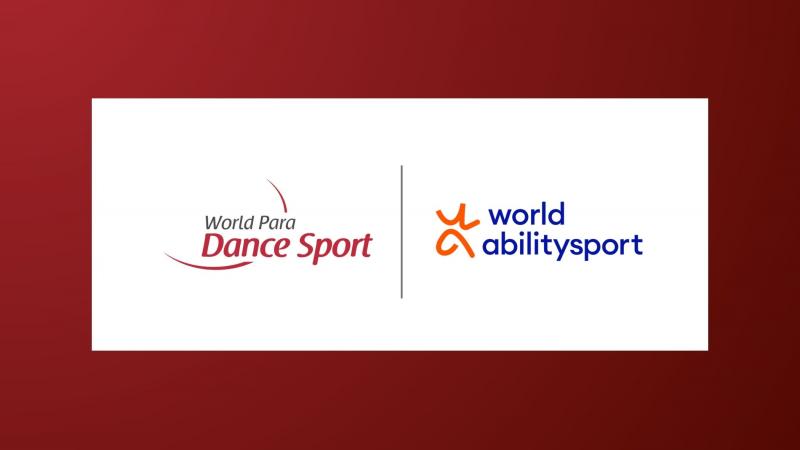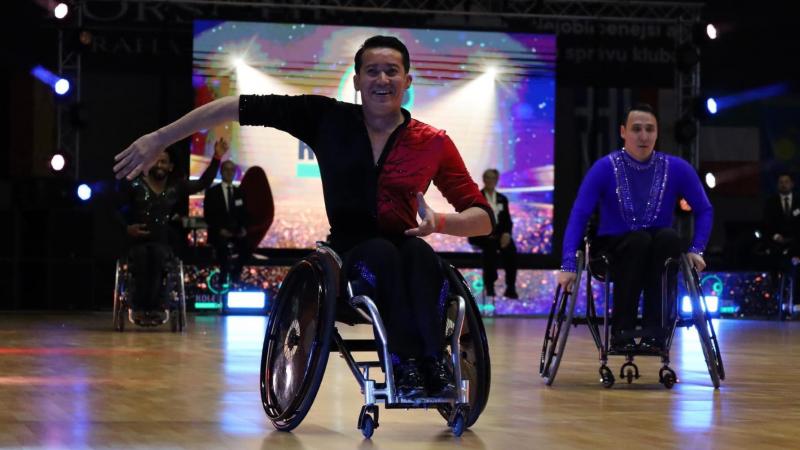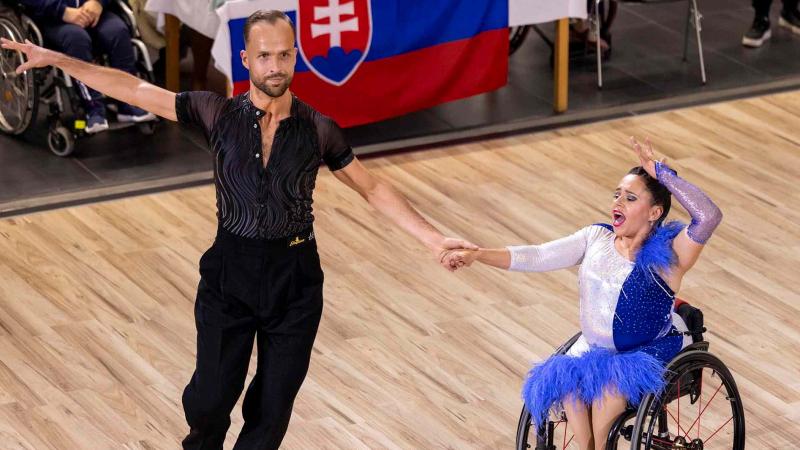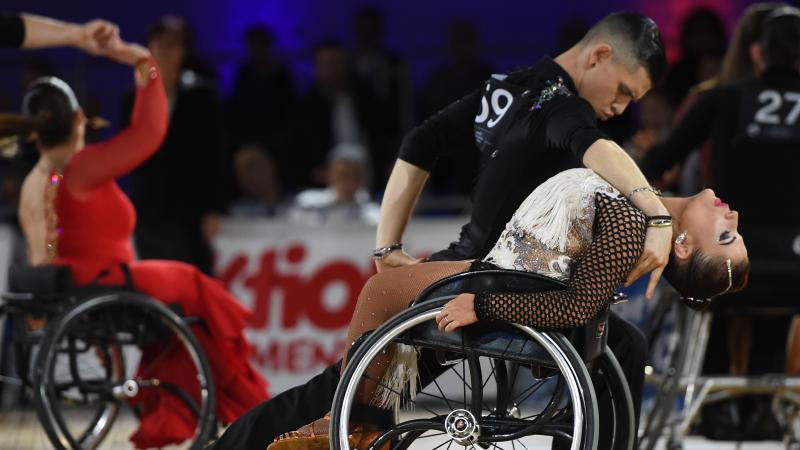Genoa 2023: Eve Dahl optimistic about Para dance future in USA
US athlete will be making her major international debut as the youngest competitor in the World Championships that takes place in Italy from Friday to Sunday this week 20 Nov 2023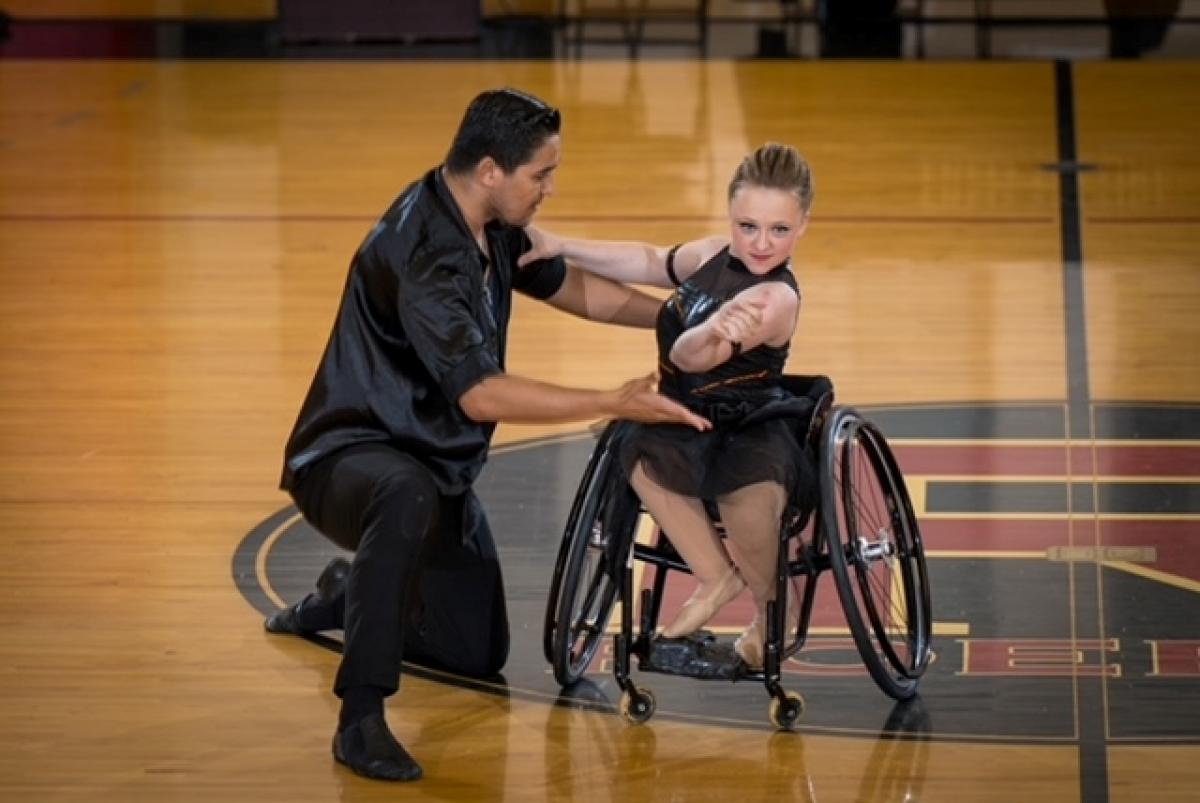
“I’m pretty optimistic about the future of Para dance in the US,” says 15-year-old Eve Dahl, who is one of the trailblazers of the sport that is little-known in her country.
“It seems to be growing slowly but surely, and I am hoping to get more coverage for the next competition.” She won’t have long to wait.
The high school student will be the youngest and only competitor from the US to compete at the World Sport Para Dance Championships in Genoa, Italy, which starts on Friday (November 24). “I’m very much looking forward to the opportunity and experience,” she says excitedly. “It will also be my first trip to Italy.”
Such is Dahl’s love of the sport that she is determined to make it as popular at home as it is in Asia and Europe.
“Dancing is something very special to me and has shaped me in many ways,” she reveals. “I have thought about starting a YouTube channel or TikTok page [on Para dance] as a way to share my experience with the world and spread awareness.”
The teenage sensation has already competed in international competitions in the last 12 months, including one in the Netherlands. She also notched up podium finishes in single freestyle and in combined, or “combi”, with her standing partner Ernesto “Ernie” Olivas.
One of her proudest moments, though, was competing at the first-ever US ballroom dance competition for wheelchair users and amputees in May last year.
It was organised by retired US Para swimmer and now Para dancer, Cheryl Angelelli. The two-time Paralympic silver medallist and six-time world champion is a co-founder of Dance Mobility, which she set up to develop wheelchair dancing as a sport and recreational activity across the country.
The 55-year-old also competes with her dance partner Tamerlan Gadirove, who is a choreographer and instructor.
More than a dozen people travelled from across the US to Bloomfield, Michigan, to take part in the inaugural Adapted Ballroom Dance Competition. It was a seven-hour drive from Dahl’s home in Burlington, Wisconsin, but she says it was worth every minute.
“My first competition was one of my proudest moments,” she says. “We didn’t really know what to expect, but I gave it my all and did quite well. It felt very satisfying, not only to make myself proud but those who came with me as well.”
Love for dance
Dahl was with Olivas, who she has been dancing with for four years, and her devoted parents, Deborah and Lance. They all give her unwavering support. “My parents, my dance partner and my community are my greatest supporters. All of them have been generous, patient and encouraging to me, and I’m grateful for that.
“My sport has also given myself and my family really cool opportunities that we wouldn’t have had otherwise, and I’d even say that dancing has strengthened our relationship,” she adds. “We’ve gone on all these adventures together, and I think just seeing how much my parents work to help me deepens my already existing appreciation for them.”
Ever since she was five, Dahl has loved to dance, which she says has helped her physically and mentally throughout her childhood. The youngest of five children was born with osteogenesis imperfecta, or brittle bone disease, which is a condition that makes her bones more prone to fracture. She has suffered many breaks and undergone surgeries.
“Due to my fragile bones, before I was dancing, I was fracturing much more often, but now that I’ve built more muscle mass, I’m more protected as well as physically aware.
“It can be difficult for a disabled person to keep active due to the fact that we are sitting most of our lives, and having fragile bones makes it even harder as most sports [unlike dancing] are high impact and high risk.”
But she says, “I’ve always just considered it [osteogenesis imperfecta] part of my life. It opens equally, if not more doors for me than it closes.
Dance has had mental health benefits, too, as she explains: “If I were to describe the impact of dance on my mental well-being, I would say it gives me purpose. By nature, I’m a very competitive person, and what I do nurtures that. I also think that dancing has, in a way, kept me sane, I guess.
“Dance is something I can control, in a way. I think that in life, I can get a little overwhelmed because I can’t always control what life throws at me and what other people do, but in dance, my only obstacle is me. The only limit to how far I can go is my own will and I find that empowering.
“It also provides an escape from reality, something to get lost in when life feels like too much, which is something that can happen a lot at my age. I’ve also made so many friends and forged relationships that will last a lifetime, if not a very long time.”
The young dancer has been embraced by the dance world, but outside, the reaction to her chosen sport can be mixed. “I don’t really talk much about dance at school because my peers usually look at me and are either like, ‘but… how?’, or ‘OK, whatever’.
“When I talk to adults, I usually get a more positive reaction, and they seem to think that it is as cool as I do. I have friends my age outside school who I am closer with, and I talk about my dancing with them.”
After many years of being homeschooled, she now attends an alternative school in the morning before going on to a local high school. She fits in training around her studies, which includes two hours twice a week with Olivas at a dance centre near her home, where she lives with her parents, three dogs and a guinea pig, and on other days she practices alone at a local studio.
Older brother
Dahl was introduced to Olivas, who she describes as “like an older brother” when she was 11 after she parted with another dance partner. “Right away me and Ernie just clicked,” she says. “I would say, me and Ernie are quite close after dancing together so long. I’d say our relationship is definitely different than most in a way.
“I think when I first started, my biggest challenge was the concept of having to touch another person and let another person lead me, as I’m a little standoffish in terms of physical touch. I think this is largely due to my disability and the fact that I’m more easily injured than most.
“It’s been a journey of cultivating mutual trust and respect. Otherwise, Ernie is like an older brother to me.”
They collaborate to select the music for their freestyle, ballroom and Latin dances, but Olivas, a professional dancer, does most of the choreography. Another teacher arranges Dahl’s solo freestyle.
She admits that deciding on a favourite is “difficult because they all have a special place in my heart”.
“I enjoy the more upbeat Latin dances, like cha-cha-cha and samba, as well as jive. However, I really enjoy the more intense, passionate dances like paso and rumba, as they allow me to explore emotions that I’m not always able to in my daily life. I also like lyrical, or freestyle, as it allows for an outlet for my negative emotions. I call that dance therapy.”
The schoolgirl has also been involved in choosing her competition dresses. “I was part of the design process for my Latin dress, which was really cool. I originally wanted a more cyan dress, but we all decided that green looks better on me, and I’ve grown very fond of it.”
It was at the US inaugural ballroom Para dance competition in Michigan that she and Olivas met Genice Marquez, head coach of Philippine National Team Paradance Sport, who advised them to compete internationally.
Just a few months later, they were at the Amstelveen 2023 Para Dance Sport International Competition in the Netherlands, where they qualified to compete at the World Championships this week.
“The Worlds is definitely a step up for me,” says the athlete, who has decided not to think about her expectations ahead of the event. “Instead of going, ‘I think this is how I will place, and this is how I want to perform’, and possibly being let down, I try to say, ‘This is what I need to do; this is what I know that I should do to the best of my ability.’”
But she does have ambitions beyond Genoa. “My ultimate dream is to make dance my career, my life’s purpose, and hopefully be able to teach other dancers as well.
“However, I’m aware that might not be possible. Even if I’m not able to make dance a part of my career, I still want to be able to keep dancing or have it as a part of my life. Honestly, I feel like to stop dancing would be like losing a part of me.”
More than 200 athletes from five continents will compete at Genoa 2023 Para Dance Sport World Championships from Friday to Sunday this week.

 Facebook
Facebook
 Twitter
Twitter
 Instagram
Instagram





